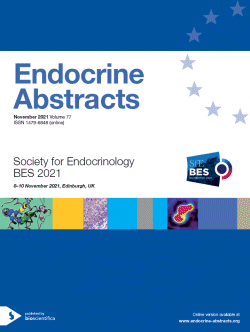Searchable abstracts of presentations at key conferences in endocrinology

Society for Endocrinology BES 2021
Edinburgh,
United Kingdom
08 Nov 2021 - 10 Nov 2021

Join us in Edinburgh for the flagship event of the Society for Endocrinology
How Do I? Sessions
How do I. . .? 2
ea0077hdi2.4 | How do I. . .? 2
Abstract unavailable
ea0077hdi2.6 | How do I. . .? 2



